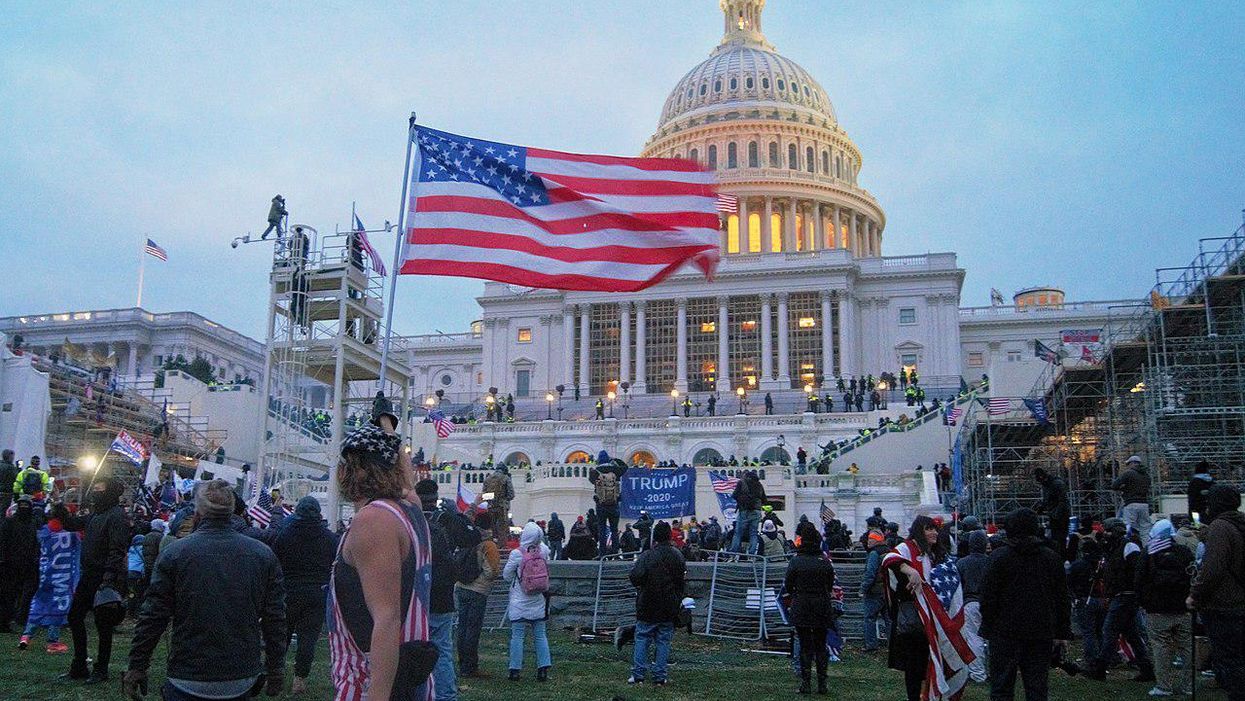Former President Donald Trump is no longer in the White House but his attempted coup is still at the forefront of political discussion. As the beginning of Trump's Senate impeachment trial nears, more details about the deadly U.S. Capitol are being made public.
While the former president's attempted coup may have reached a boiling point on Jan. 6, his efforts to undermine the United States' elections system and push the norms of America's democracy actually began months before the election was called for President Joe Biden. An article published by The Atlantic lays out how that happened.
The writer, David A. Graham, notes the latest developments involving Justice Department official Jeffrey Clark, the assistant attorney general accused of conspiring with Trump to replace former acting U.S. Attorney General Jeffrey Rosen. He also explained the circumstances leading up to that effort:
"After the election, Trump pressed Attorney General Bill Barr to turn up evidence of fraud in the voting. The Justice Department did not manage to find such evidence, nor has anyone else provided any persuasive proof of widespread fraud. Barr soon resigned, amid public browbeating from Trump on the topic. The president then began badgering Jeffrey Rosen, the acting attorney general, to intervene in lawsuits filed by his allies about election results and to appoint a special counsel. Rosen refused."
In the months leading up to Election Day and the Capitol riots, Trump set the stage for what transpired. Prior to the presidential election, Trump repeatedly claimed if he lost the election, it was automatically rigged. After losing the election, he made dozens of attempts to challenge the election outcome in the courts, but to no avail. After repeated, failed attempts to overturn the election and bully state election officials into invalidating their results, Trump resorted to having his base attempt to force lawmakers into doing his bidding.
Graham also highlighted the dangers and possible long-term impact of Trump's actions:
"The idea of a violent coup was perhaps the most far-fetched element of this push. No one except the truest believer would have expected that the Capitol would be so poorly guarded and so easily overrun. Trump certainly wasn't going to throw himself into that effort the way he had others. In fact, each of these ideas was probably doomed. Maybe they all were as a whole. What is dangerous is that the president of the United States had so many different tendrils of sedition active at once."
Even after all that has transpired, Graham notes that members of the Republican Party are still derailing holding the former president accountable by "debating whether Trump was culpable for the actions of the mob on January 6."
With two weeks until the impeachment trial, Graham also raised concerns about the "cooling-off period" being beneficial for the disgraced, twice-impeached president.


